As Sergey Lavrov replaces the country's leader on the sunshine island, what do Russian experts think about the situation?
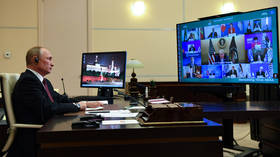
This week's G20 summit, in Indonesia, is unlikely to be a pleasant event for Russia. Information suggests that many of theevent’s participants intend to refuse to take part in photo-ops with representatives of Russia, and will even try to isolate them.
If this speculation proves true, Russian Foreign Minister Sergey Lavrov will take the full brunt, as he will be the one leading the delegation. According to the Kremlin, Vladimir Putin has personally decided to skip the summit due to his busy schedule and the need for him to stay in Russia.
Participants of the G20 summit have already arrived in Bali, and it seems that some wish Putin was there.
French President Emmanuel Macron has stated the need to continue dialogue with Russian President, German Chancellor Olaf Scholz admitted that "it would be good if Putin went," and Turkish leader Recep Tayyip Erdogan believes that the participation of his Russian counterpart would be appropriate.
All this is against the backdrop of China's support. The Washington Post has written that Western countries are alarmed by the partnership between Putin and Xi. The newspaper's sources do not think that Beijing will refuse to support Russia at the summit even after the meeting between Biden and and the Chinese head-of-state.
Lavrov is on the mission
Although several days have passed since Sergey Lavrov’s trip was announced, it is still unknown whether any bilateral meetings are planned for the Russian minister. In particular, Moscow has yet to mention a possible encounter with US Secretary of State Antony Blinken.
The main news about Lavrov in Bali, so far, was pushed by AP and some other Western outlets, on Monday, reporting that he had been taken to hospital with heart problems shortly after arriving.
Foreign Ministry spokeswoman Maria Zakharova said these reports are “top-level fake news”. The diplomat, who is also in Bali, said that she was reading the news with the foreign minister and they both “just couldn’t believe our eyes.”
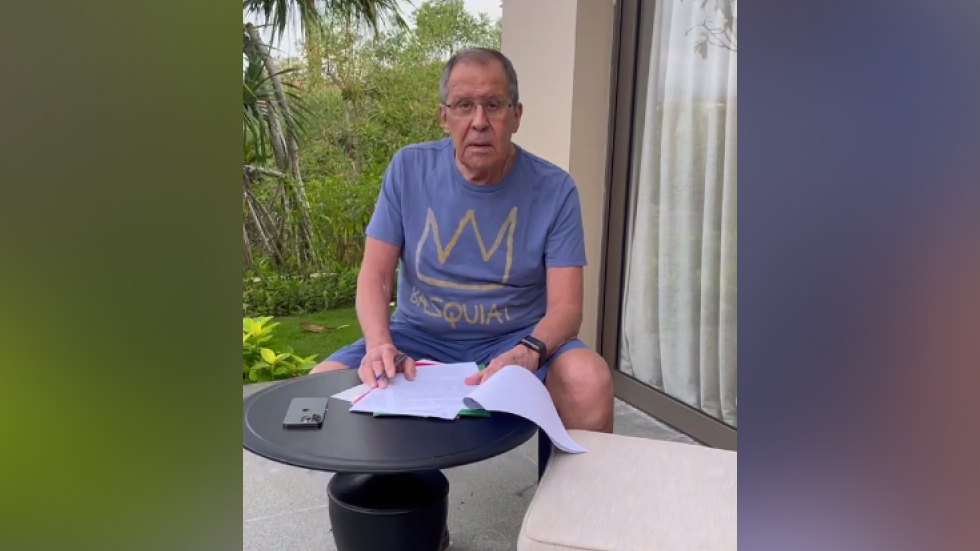
Earlier she announced that Lavrov plans to speak at the summit about Russia’s initiatives to provide food and energy to foreign markets. In addition, Moscow’s agenda includes presenting its plan to enhance gas cooperation with Turkey.
In general, this fits into the official G20 agenda. According to preliminary information, the summit’s participants plan to discuss health issues, the transition to sustainable energy, and digital transformation.
However, it is not known whether the 2022 Bali summit will be useful in helping the world take a step forward in overcoming the Ukrainian crisis, as some expect. So far, all the statements of Western leaders have indicated the opposite.
Western countries have been putting pressure on the summit’s host to exclude the Russian Federation from the event since Vladimir Putin announced the military operation in Ukraine last February. For example, the US president’s national security adviser, Jake Sullivan, said that Russia can no longer take part in the international community’s business “as usual,” while Polish Foreign Minister Zbigniew Rau even suggested that his country should take Moscow’s place in the G20 club.
Nevertheless, Indonesia sent an invitation to President Putin, despite the pressure.
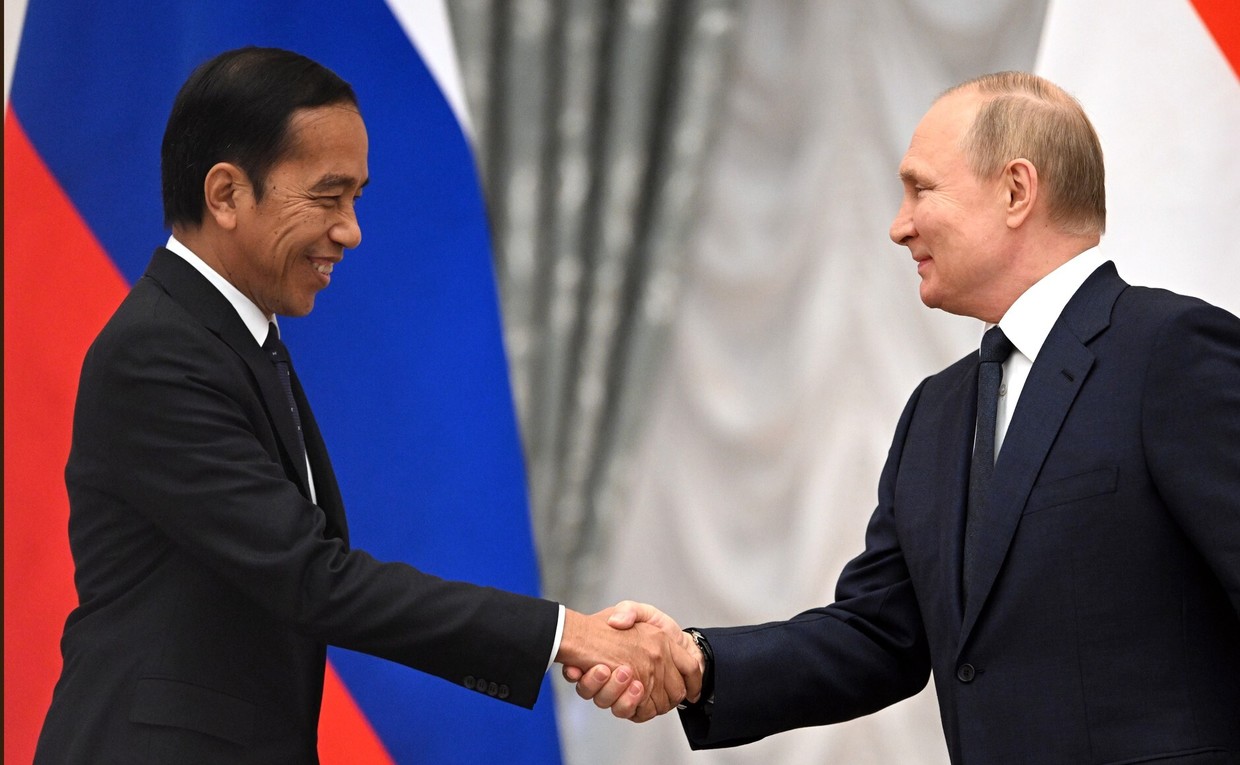
Meanwhile, Ukrainian President Vladimir Zelensky was also invited to take part in the meeting, despite the fact that his country is not a member of the G20, and not remotely close to meeting the criteria.
However, the leaders of the two countries wouldn’t have met in person in any case. Zelensky also refused to visit Bali but is expected to take part in the summit in an online format.
Expectations vs Reality
Oleg Barabanov, program director of Moscow's Valdai International Discussion Club, believes it's best to separate the standard issues on the G20 agenda from the expectations of possible agreements on Ukraine that could have been made on the sidelines with the participation of Vladimir Putin.
“The annual agenda of the G20 includes discussing the green economy, as well as the fight against poverty and inequality. One of the main issues that will be addressed in Indonesia this year is recovery from the Covid-19 pandemic. Though it’s a pity that Putin will not take part in this, these issues will nevertheless be considered with the participation of Lavrov,” Barabanov told RT.
On the other hand, he says various backstage discussions, meetings, and searches for compromise on the crisis could really have taken place in Bali.
“Obviously, nothing will happen now. And expectations that the G20 summit could lead to a breakthrough in settling the Ukrainian conflict were not justified,” the expert lamented.
Academic Director at the Higher School of Economics’ Centre for Comprehensive European and International Studies (CCEIS), Timofey Bordachev, in turn, warns against exaggerating the impact of Putin’s absence from the Bali summit.
“By and large, nothing will be lost because Putin’s not going to the G20. I don’t think the Chinese will be very happy about it. They want formats like this to continue, as the leadership role will gradually shift from the West to China. It will also be a little unpleasant for Western countries that wanted to put on a show in front of the Russian president. Now the performance will be staged in front of Lavrov. Russia won’t lose anything at all because it doesn’t face any issues dependent on the G20’s cooperation. I don’t think the Indonesians will be too offended either. They rebuffed all attempts by the US to exclude Russia, but they did it for their own sake, to show that Indonesia isn’t beholden to the United States,” Bordachev told RT.
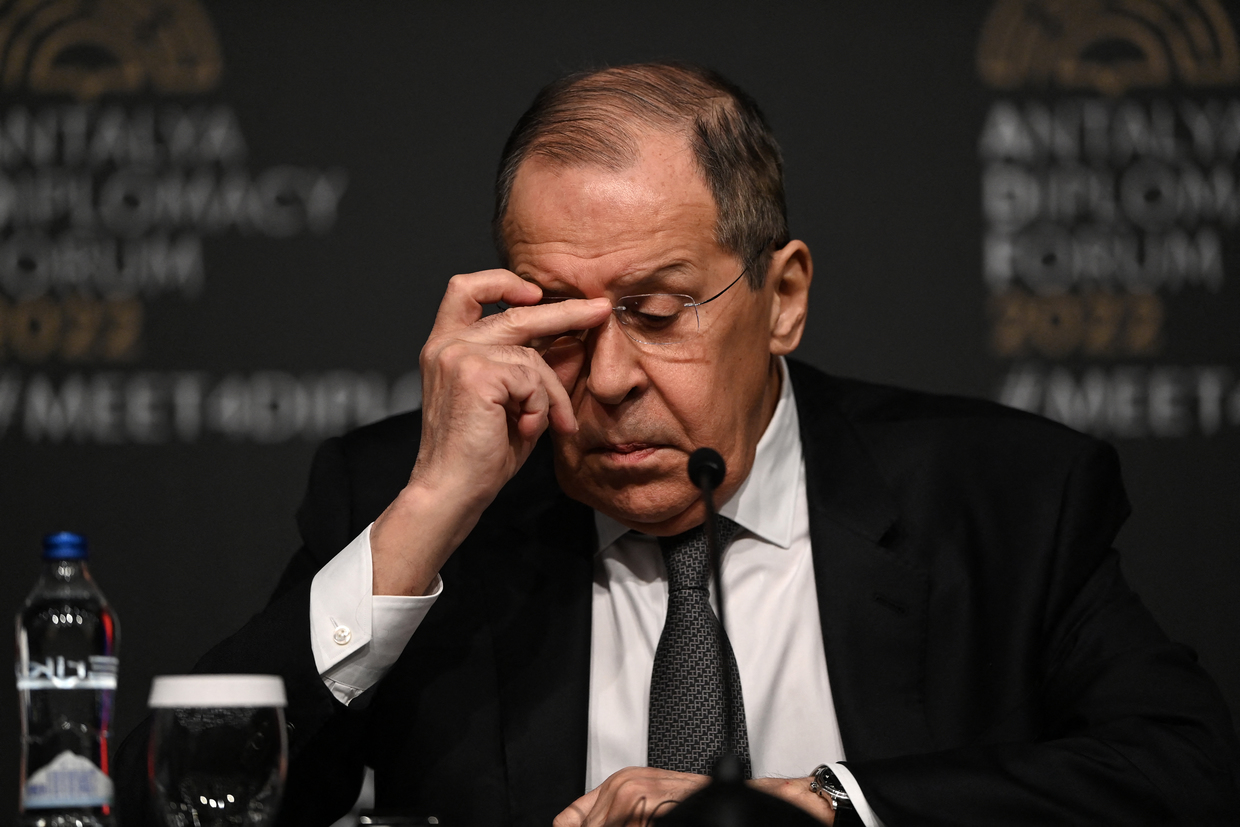
Andrey Suzdaltsev, a political scientist, also believes that there was no great need for Vladimir Putin to go to the summit, but for a different reason.
“It doesn’t make much sense for Russia to go to the G20 now. For Putin to appear there, Russia needed to have some kind of advantage, be it military, economic, or political. For example, the advance in the Donbass, but definitely not the evacuation from Kherson. In addition, it’s necessary to have international support – here Russia at least has contacts with China and India. You also need to offer your own initiatives, bring a briefcase with you. Russia has failed to do this now, which means that it is, in fact, pointless to go. It’s one thing if you have a lot of authority, and another when you have some problems,” Suzdaltsev said.
Vladimir Zharikhin, deputy director of the Institute of CIS Countries, thinks it can be useful to communicate with the leaders of non-G7 countries at the G20. “The importance of the G20 will decrease somewhat due to the absence of Putin. No matter how many nasty things they throw at him, he’s one of the leading leaders of the world. Yes, Lavrov will be there. But, as the saying goes, sand is no substitute for oats. With all due respect to the Russian Foreign Minister, this, of course, still constitutes a downgrade in the level of representation, and a decrease in the significance of the G20. After all, they are going to discuss pressing world problems there, one of which is the wide conflict between Russia and the West. It is much more difficult to discuss this without Putin’s participation,” Zharikhin explained.
Where is the G20 Headed?
The G20 format was born in the late 1990s after the Asian financial crisis, when the mainly Western countries in the ‘Big Seven’ – the US, the UK, France, Germany, Italy, Japan, and Canada – realized that a number of large economies were not participating in discussions on global issues. The newcomers invited to the table include Argentina, Australia, Brazil, India, Indonesia, China, Mexico, Russia, Turkey, South Korea, South Africa, Saudi Arabia, and the European Union.
However, the format did not reach its current status until the next global financial crisis, in 2008-2009. Prior to that, the meetings had only included finance ministers and the heads of central banks. However, subsequently world leaders themselves met at the summits annually to consult, first and foremost, on financial and economic issues. In 2013, the G20 was held in St. Petersburg.
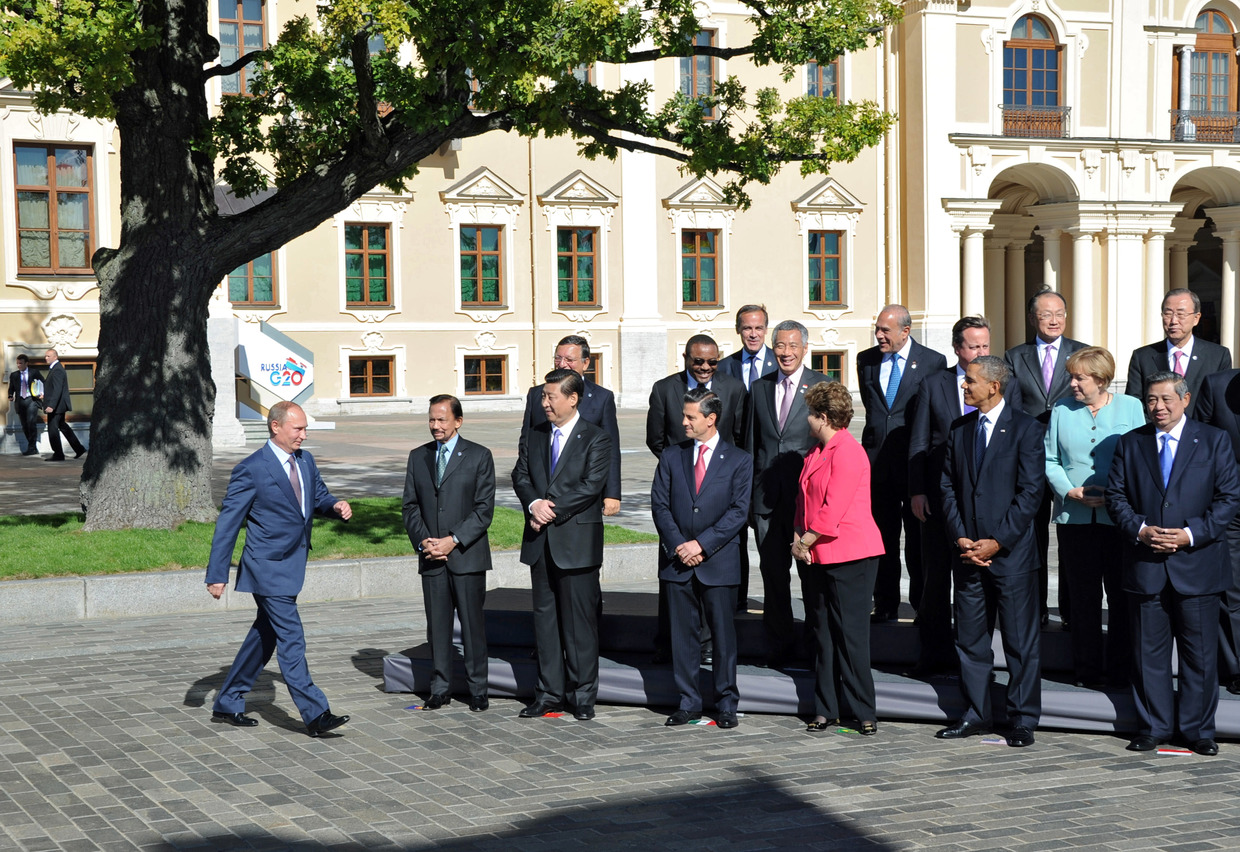
The goal of the format was to achieve global economic stability and to create conditions for sustainable growth, while reducing the risk that financial crises would occur.
The G20 countries are home to two-thirds of the world’s population. They also account for 85% of world GDP and about 75% of world trade.
Decisions of the G20 are by consensus and are recorded in a communiqué, but are not binding.
Russian experts have been skeptical about how effective the group has been in recent years.
“In general, both the G20 and the G7 stand for everything good against everything bad. Year in and year out, they publish beautiful communiqués calling for all the right things. But it’s difficult to say how much of this is actually implemented in real politics. Moreover, every year, a new chair country sets the tasks for the year, while ignoring what its predecessor had included,” Barabanov points out.
According to Bordachev, the last few years have betrayed the club’s lack of effectivity in solving the world economy’s most important problems.
“In recent years, it seems that everyone has been solving their problems individually. The format exists, and no one wants to abandon it because everyone wants a stage on which to speak out, but everyone really acts in their own interests. China is trying to gradually rebuild these institutions and organizations, which the West created with its own goals, according to its own vision. And now it’s important for Western countries to come out as a united front to show their unity to the world. But, of course, mistakes and problems that can’t be solved will not be recognized in the general communiqué,” he expects.
Zharikhin shares a similar point of view. In his opinion, all meetings and agreements have become devalued because “the world’s former leader, the United States, builds its policy as if in a game without rules.”
“Tomorrow they’ll say that they’ve decided otherwise – we remember how they’ve withdrawn from treaties and failed to fulfill their obligations. Objectively, all international organizations, starting with the UN, are losing their influence. But the point of participating in them still remains precisely for the sake of communicating with non-Western countries that are ready to seek compromise,” he believes.
Suzdaltsev agrees that there is not much life in G20 resolutions, since they contain mostly guidelines for the future.
“But there is a negotiating element at summits like these, and the G20 provides a forum for this. It’s still better than having a war,” he says.

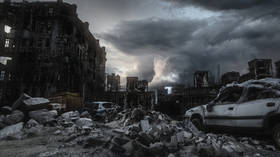
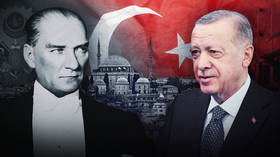
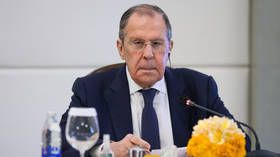


0 Comments:
Post a Comment
Subscribe to Post Comments [Atom]
<< Home